Daniel Holmberg
Deterministic and probabilistic neural surrogates of global hybrid-Vlasov simulations
Jan 21, 2026Abstract:Hybrid-Vlasov simulations resolve ion-kinetic effects for modeling the solar wind-magnetosphere interaction, but even 5D (2D + 3V) simulations are computationally expensive. We show that graph-based machine learning emulators can learn the spatiotemporal evolution of electromagnetic fields and lower order moments of ion velocity distribution in the near-Earth space environment from four 5D Vlasiator runs performed with identical steady solar wind conditions. The initial ion number density is systematically varied, while the grid spacing is held constant, to scan the ratio of the characteristic ion skin depth to the numerical grid size. Using a graph neural network architecture operating on the 2D spatial simulation grid comprising 670k cells, we demonstrate that both a deterministic forecasting model (Graph-FM) and a probabilistic ensemble forecasting model (Graph-EFM) based on a latent variable formulation are capable of producing accurate predictions of future plasma states. A divergence penalty is incorporated during training to encourage divergence-freeness in the magnetic fields and improve physical consistency. For the probabilistic model, a continuous ranked probability score objective is added to improve the calibration of the ensemble forecasts. When trained, the emulators achieve more than two orders of magnitude speedup in generating the next time step relative to the original simulation on a single GPU compared to 100 CPUs for the Vlasiator runs, while closely matching physical magnetospheric response of the different runs. These results demonstrate that machine learning offers a way to make hybrid-Vlasov simulation tractable for real-time use while providing forecast uncertainty.
Regional Ocean Forecasting with Hierarchical Graph Neural Networks
Oct 15, 2024
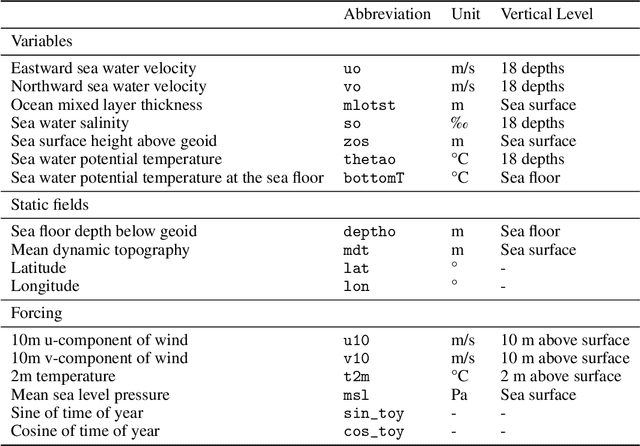
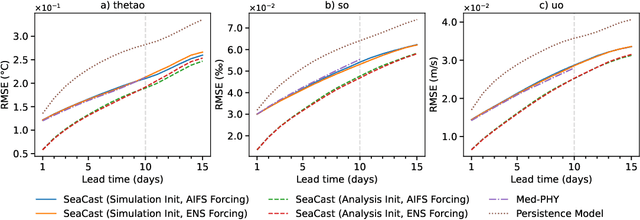
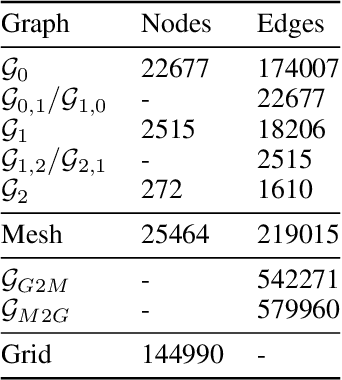
Abstract:Accurate ocean forecasting systems are vital for understanding marine dynamics, which play a crucial role in environmental management and climate adaptation strategies. Traditional numerical solvers, while effective, are computationally expensive and time-consuming. Recent advancements in machine learning have revolutionized weather forecasting, offering fast and energy-efficient alternatives. Building on these advancements, we introduce SeaCast, a neural network designed for high-resolution, medium-range ocean forecasting. SeaCast employs a graph-based framework to effectively handle the complex geometry of ocean grids and integrates external forcing data tailored to the regional ocean context. Our approach is validated through experiments at a high spatial resolution using the operational numerical model of the Mediterranean Sea provided by the Copernicus Marine Service, along with both numerical and data-driven atmospheric forcings.
Modeling 3D Infant Kinetics Using Adaptive Graph Convolutional Networks
Feb 22, 2024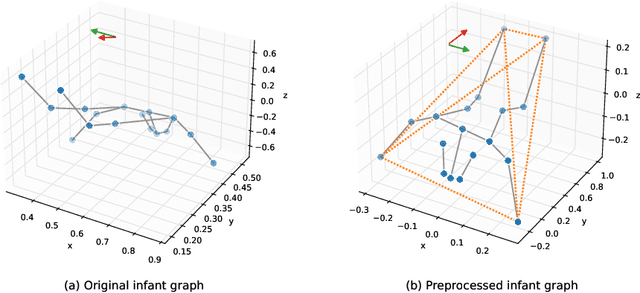


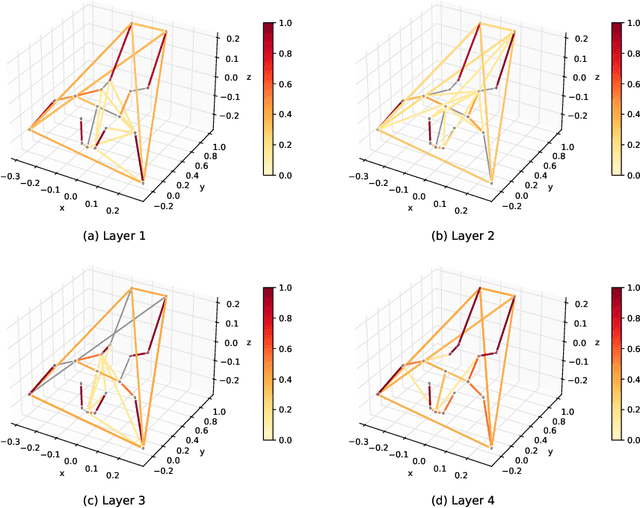
Abstract:Reliable methods for the neurodevelopmental assessment of infants are essential for early detection of medical issues that may need prompt interventions. Spontaneous motor activity, or `kinetics', is shown to provide a powerful surrogate measure of upcoming neurodevelopment. However, its assessment is by and large qualitative and subjective, focusing on visually identified, age-specific gestures. Here, we follow an alternative approach, predicting infants' neurodevelopmental maturation based on data-driven evaluation of individual motor patterns. We utilize 3D video recordings of infants processed with pose-estimation to extract spatio-temporal series of anatomical landmarks, and apply adaptive graph convolutional networks to predict the actual age. We show that our data-driven approach achieves improvement over traditional machine learning baselines based on manually engineered features.
 Add to Chrome
Add to Chrome Add to Firefox
Add to Firefox Add to Edge
Add to Edge